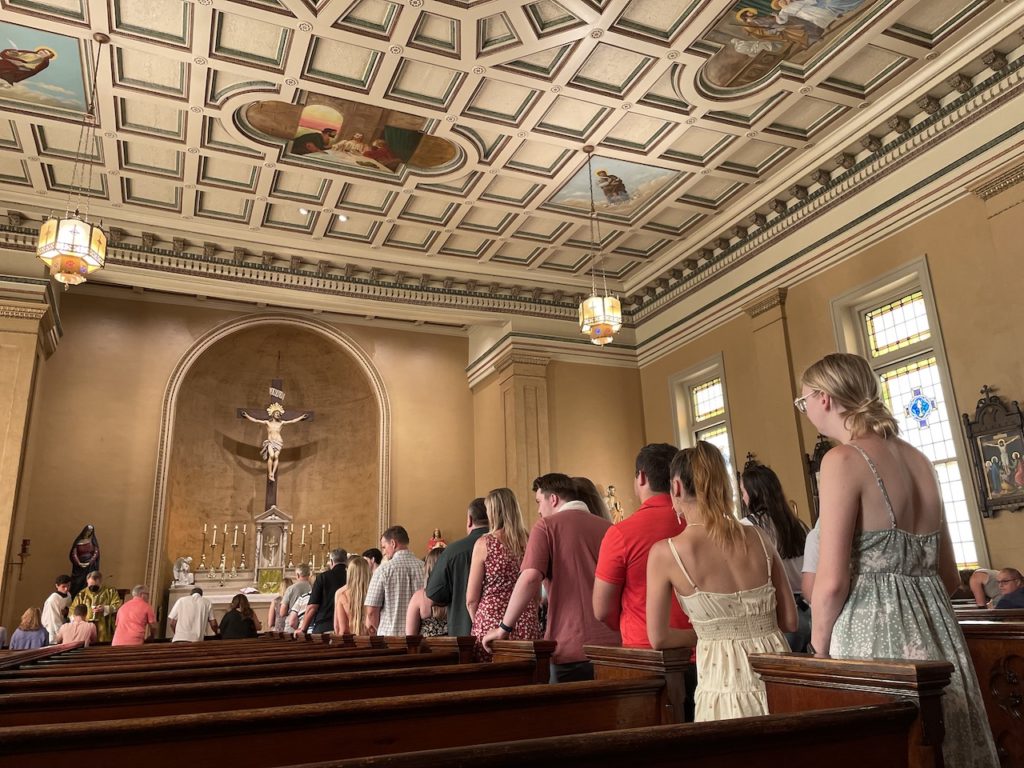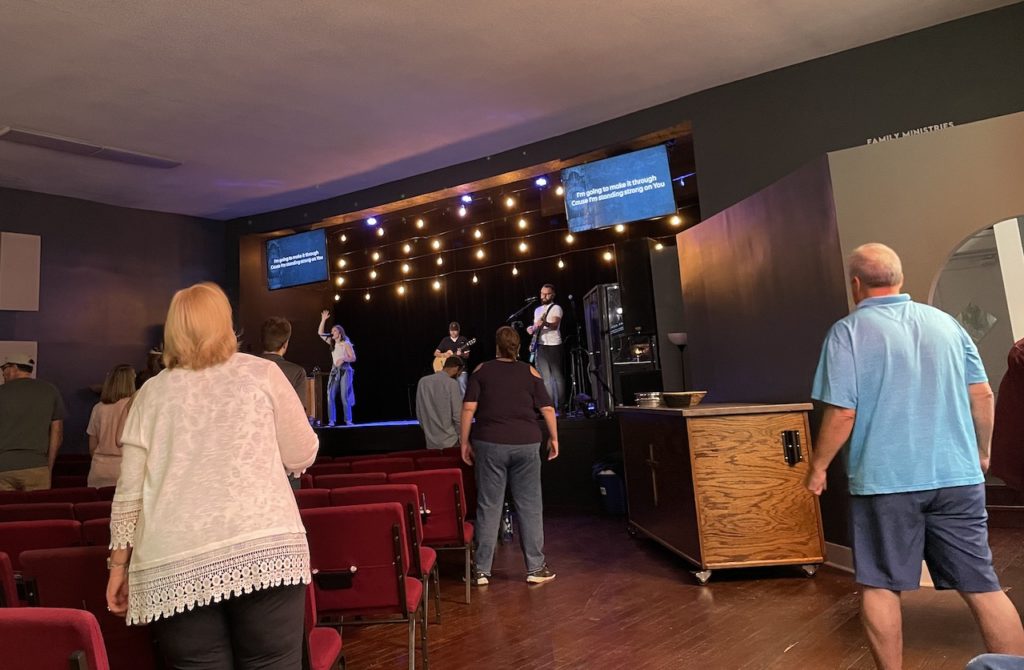
As the bells rang out at St. Mary of the Seven Sorrows, security was tighter than normal for this weekend’s mass. Because a block away in downtown Nashville, abortion rights activists rallied much of the weekend. And it’s safe to say some might not respond well to what church members had to say.
“God has heard our prayers,” says Louise Kitchens, a parishioner who greets visitors and tells them about the historic church building. “Now, you got to think a little bit before you have sex with somebody you don’t know.”
Kitchens says her firm stance against abortion is rooted in Catholic teaching. But the latest Pew Research survey shows only about half those who identify as Catholic believe abortion should be illegal.
Catholics and evangelical Christians have been waiting for Roe v. Wade to be overturned since it became the law of the land nearly 50 years ago. But this weekend was not much of a pep rally for those who have advocated most strongly against abortions.
The Southern Baptist Convention — the largest protestant denomination in the country which is based in Nashville — held an informal event on Zoom. And rather than rallying the faithful, Dana Hall McCain of the denomination’s executive committee asked for church-goers to act with compassion. She also discouraged fundamentalists who’ve been pushing for laws that would punish women who have abortions, not just their doctors.
“It gives us the possibility of pursuing justice but unintentionally creating new types of injustice,” she says.
McCain volunteers at a crisis pregnancy center in Alabama and says it’s impossible to miss the complexity of almost every story — often involving a woman living in some type of poverty or some kind of abuse. And she says many times they are being “coerced” by a man or parent to go have an abortion.
“The woman who will be subject to criminal prosecution will be the woman who lives well below the poverty line and does not have access to resources and also lacks resources for an adequate criminal defense,” McCain says.
Even for those who have fought abortion on a daily basis, like Scott Hord who spends most days outside the Planned Parenthood clinic in Nashville, the celebration was only in private. He says he didn’t want to attract the ire of protesters.
Church leaders also don’t want to come off as “gloating.”
 Blake Farmer WPLN News
Blake Farmer WPLN NewsUnite Church in East Nashville launched a diaper drive to support a crisis pregnancy center following the decision to overturn Roe v. Wade.
“If I’m going to celebrate something in the face of someone who is weeping, it doesn’t feel like love,” says Grant Pemberton, co-pastor of the Unite Church in East Nashville.
Pemberton calls the overruling of Roe v. Wade “a step in the right direction.” The church already works with a crisis pregnancy center, and in response to the abortion ruling, the congregation launched a diaper drive to support new mothers.
He leads the evangelical church with Mark Lancaster, who says they act with compassion as they believe Jesus would have done. Lancaster is slow to even define an abortion as sin, despite his opposition. He says he got someone pregnant when he was 19 years old, and she had an abortion.
“I know the thoughts that go on in your head, personally, and I know the weight on that, the repercussions that can come along later,” Lancaster says.
Though he would hope to guide someone away from abortion, Lancaster says he’s not judging anyone for their decision and wouldn’t want any of his church member to feel shame. But steering a congregant away from termination will be easier in Tennessee where getting a legal abortion now means finding a way to another state.
But commitments to crisis pregnancy centers and supporting young fall short for Karen Fuqua of Brentwood. She’s one of the few evangelicals passionate enough about abortion rights to join the protests in Nashville over the weekend. She had her own child out of wedlock in the mid-1970s, and even her parents as members of the conservative Church of Christ denomination told her: “You have choices.”
She had to drop out of college and had the baby but required more help than she could have imagined.
“It’ll never be enough,”Fuqua says. “There are unseen costs — diapers and formula and health insurance and daycare. All of the things I was lucky enough to have, most girls don’t have.”
Just a few years earlier, before Roe v. Wade was decided in 1973, she had to drive a friend from Tennessee to New York to get an abortion over a weekend. She says her friend cried the whole way. Now, 50 years later, Fuqua says it’s roughly the same emotional journey others will be forced to make.
 Blake Farmer WPLN News
Blake Farmer WPLN NewsKaren Fuqua, 67, is a life-long member of the conservative Church of Christ denomination from Brentwood and one of the few evangelicals marching with abortion rights protesters in Nashville this weekend.

